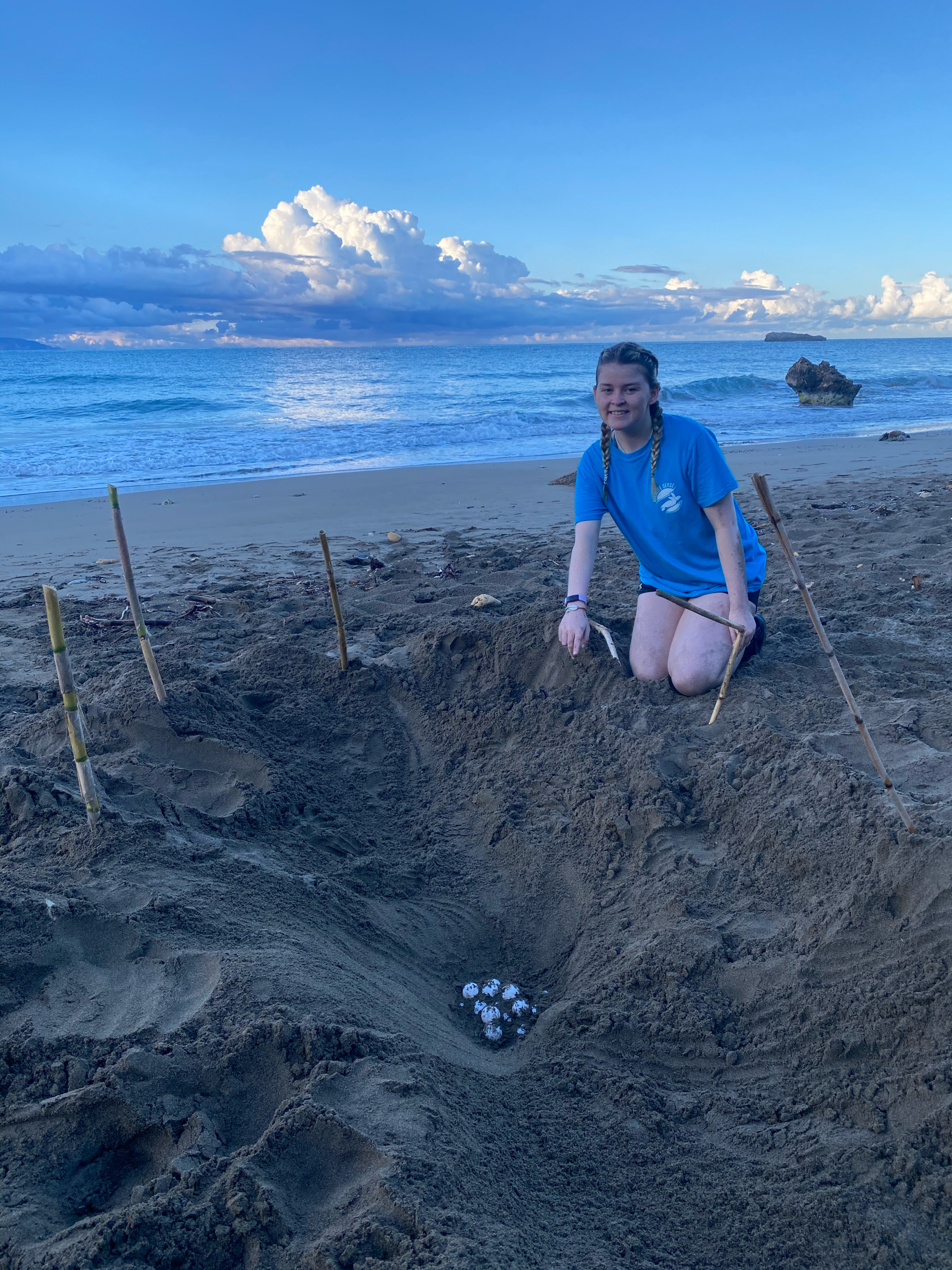Why Biology?
I studied Leaving Cert Biology at school, but when it came to applying for university, I wasn’t sure what area of Biology I wanted to focus on, veterinary or health, so I decided to continue on a general Biology programme as it’s great starting point covering all areas of Biology.
Why Ulster?
I chose Ulster because it was close to home, but not too close that I still had my independence. I loved that the Campus was on the coast!
How I applied
I went through Clearing which was a fantastic experience. I was so stressed and felt I hadn’t found a course I loved, so when I searched on UCAS and saw Clearing, and then found Biology at Ulster, I felt the modules were really diverse and the best choice for me.
Words of advice
Bring a raincoat for those field trips! A highlight of the year was going to the Giants Causeway on a field trip, but you’ll need a raincoat just in case!
My placement
I had really wanted to travel during Covid but couldn’t, so after extensive research, during the summer after 1st year at Uni I decided to do some work experience abroad as a turtle field researcher.
I didn’t want to do a placement year because I had a part-time job, so for me summer experience was the best fit.
My experience
I spent my summer travelling and volunteering as a turtle field researcher in Greece and Costa Rica.
In Greece I volunteered during nesting season. It involves so much work and dedication from volunteers. Turtle conservation is so much more than just picking up turtles and taking them to the water. I participated in beach profiles, morning beach surveys, harbour shifts and beach cleans.
During the beach profiles we would measure the beaches and the distance to the sea, assess the risk of erosion and weather damage. Sometimes the team would need to relocate the nest to a safer location and the eggs would carry on incubating.
Completing a module on ecology and biodiversity at Ulster was helpful, as I could then see the effect the ecosystem has on the turtles but also the effect the turtles have on the ecosystem.
To complete beach surveys we would need to get to the beaches at around 5am in the hope of finding tracks before the tourists arrived.
It was a long cycle but so important to make sure any turtle nests were protected or relocated if they were in an unsafe place. One turtle for example had made its nest on a volleyball court, so we had to relocate the nest as it would have been in danger staying where it was.
My biostatistics module came in handy when we monitored turtle behavior at the harbor. It was during this activity that I noticed that a turtle wasn’t using its front flipper. I helped rescue it with a local vet and successfully released her back into the water.
The turtles face a lot of challenges, and our role is to ensure their safe journey to the sea. Tourists, infrastructure and traffic cause confusion as the light they give off which can lead the turtles in the wrong direction when they are looking for the water.
My experience in Greece gave me the confidence to take the leap and travel on my own to Costa Rica. I worked with another turtle conversation team, but this time the experience was completely different. The culture was the biggest shock!
In Costa Rica I was involved in night patrols, hatchery watch and fieldwork. Sadly, there is a huge risk of poachers and other animals endangering the turtles, so one of the crucial roles of volunteers is to patrol the beaches 24/7.
We took it in turns walking the 14 km beach during 4-hour shifts to make sure the turtles were safe. Once we discovered turtles, we would move the nests to hatcheries to protect them and then watch them make their way into the water (which can take them up to an hour!).
Overall, I witnessed 400-500 turtles make their way into the sea, which was an incredible experience.
Trip highlights
In Costa Rica, I had the most amazing experience as a turtle ‘midwife’ one evening, catching the eggs as the mother laid them and safely placing them into the hatchery.
What I gained
This work experience has really opened my eyes to the world around me and what I can do if I put my mind to it. Biology isn’t just teaching or lab work, you could work as a conservationist or field researcher. There is so much to Biology! My confidence has grown as I’ve worked with an amazing team of volunteers, and I have lots of amazing experiences I can talk to future employers about.
My future goals
I want to work with animals, so I am considering a route into Zoology or Veterinary. I want to gain as much experience as possible in animal biology so I’m in the best position to apply for future opportunities, and this work experience has really helped. I’m so glad I did it!




















